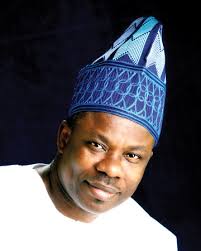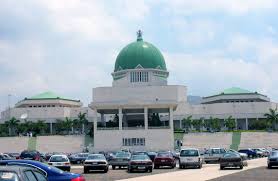A bill that is seeking to establish the National Industrial Technology Park similar to the Silicon Valley scaled second reading on Tuesday on the floor of the senate
The Bill which was sponsored by Senator Ibikunle Amosun (Ogun Central) was read for the First Time on Tuesday 16th November, 2021
While presenting his lead debate senator Amosun indicated that the bill is targeted towards economic development, youth empowerment and capacity building.
“The Bill seeks to establish industrial parks where Nigerian entrepreneurs can converge in a cluster, brainstorm, and showcase their ideas and creativity, thereby reducing unemployment, poverty, idleness, and lack of productivity and restiveness in the country.

“The establishment of the Industrial Technology Park in Nigeria is imperative as it will go a long way to assisting in nurturing Nigerians to be technologically savvy and competitive, as well as serve as a veritable platform for the promotion and commercialisation of research and development.
The objective of the Industrial Park he said is to stimulate investment and creating employment facilitating export growth and foreign exchange earnings developing industrial clusters
entrepreneurship development
Eliciting knowledge transfer and technology spillover.
He said it will also establish connections to the global value chain
Development of research centers, Fostering sustainable growth and social equality
Utilisation of products from clusters by MSMEs within the Park.
“All over the world, industrial parks are taking the lead as incubators for innovative technology and a circular economy. “The establishment of Parks, such as this, makes it easier for companies and entrepreneurs to leverage the availability of resources, technical know-how, knowledge and professionalism, which can pave the way for developing and testing business and technology solutions.
“Let me reiterate that technology has a greater role to play in achieving the much desired economic diversification and sustainable industrial development of our nation. “Technology is also capable of addressing the imperfections of the Nigerian market and the institutional system that hampers companies’ access to information, knowledge, and new innovations.
According to him, Industrial Parks have the ability to exploit the local potential in supporting knowledge-based business development and outline an environment where companies can interact with other supporting knowledge suppliers, thus facilitating business and local development, which will result in increased employment and revenue generation.
Furthermore, he indicated that the establishment of an Industrial Park of this nature will go a long way towards accelerating the process of reforming and diversifying the nation’s economy, by attracting innovative businesses that can generate jobs, higher incomes, and more resources for institutions.
“When this Bill is passed into law, it will bring about technological advancement and technological self-reliance for our nation, thereby making Nigeria an industrial nation. It will also serve as a source of wealth generation and enhancement for investors and governments.




